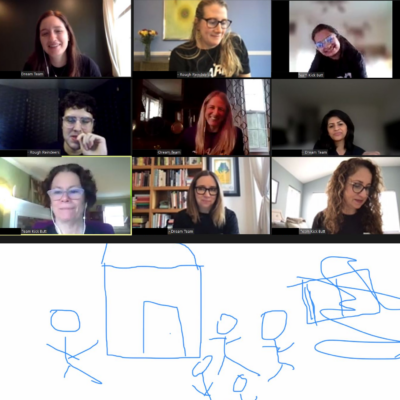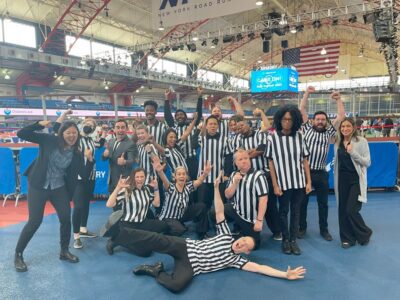Put yourself in the shoes of an employee. You’re performing well, exceeding expectations, and working hard. Because of your hard work, you receive more responsibilities and work. While your boss might think it’s a reward, you see it as performance punishment.
Another rising topic in recent years is performance punishment, which occurs when high-performing employees are given more work, often without promotions or raises. Unsurprisingly, this can have numerous negative side effects for employees and businesses.
Today, let’s examine how high performers are often punished with more work. We’ll cover what performance punishment is, the signs it’s happening, how to avoid it, and how to reward employees effectively without saddling them with additional work.
What is Performance Punishment?
Let’s start with a simple question—what is performance punishment? In simple terms, it is when high-performing employees are given more work and responsibilities, typically without a promotion or increase in compensation. And to be clear, there’s a difference between a promotion and performance punishment. Promotions come with raises, and people actually feel like they’re being rewarded for their hard work—not saddled with extra thankless work.
Managers and leaders who engage in this think it is a reward to employees and will help increase workplace productivity. However, they’re really doing the exact opposite—punishing employees and decreasing productivity. When the reward for good work is more work without more pay, employees are going to get frustrated. It makes them feel like they’re just seen as a means for the business to make money and aren’t valued or rewarded for their efforts.
It can lead to burnout, decreased productivity, decreased quality of work, higher turnover, increased stress/anxiety, resentment, morale loss, and more. These effects can have a huge impact on employees, their well-being, and the business as a whole.
Performance Punishment and Quiet Promoting
Another topic closely related to people being punished for performance is quiet promotions. A quiet promotion is when an employee is given more work and responsibilities without a promotion or pay raise to match, typically when another employee leaves.
This happens a lot, where someone on the team leaves and their duties are given to someone else without any compensation. As with employees punished for performance, this can quickly lead to resentment, burnout, low morale, and more. They are both examples of a high performer taken for granted. The business just assumes the employee will be happy to do more work and have more responsibilities, with no thought given to the employee’s perspective or well-being.
The underlying point between both of these is that high performers are given extra work without added compensation. If you were making $XXXX a week with a certain workload and suddenly have double the work for the same pay, that’s going to make you unhappy.
While this might seem obvious, there are many businesses and leaders who completely overlook this. Whether it’s because they don’t think about the employee perspective or simply don’t care, it’s just not an effective strategy to increase productivity or performance.
Signs of Performance Punishment in the Workplace
If you want to make sure there is no performance punishment in your workplace, you need to be able to recognize the signs it’s happening. Here are a few of the biggest indicators that employees might be getting punished for their performance:
Unequal workload.
If certain employees have a lot of work while others have little, that’s not a good sign. Workloads should be distributed fairly equally across the workforce, and employees with larger workloads should be in higher positions with higher pay.
Lack of boundaries and poor work-life balance.
Employees not being able to set boundaries and having a poor work-life balance is a sign they have too much work and are unable to say no. Leaders should emphasize the importance of boundaries and work-life balance.
Lack of acknowledgment or compensation.
When employees perform well, achieve goals, or are given more work, it needs to come with acknowledgment or compensation. People like working hard and moving up, but they want to be rewarded for their efforts too.
Reduced satisfaction among high performers.
High performers should be satisfied with their positions. If they aren’t, that’s a sign of deeper problems. Check in with high performers to see how they’re feeling and ensure they aren’t being punished for their performance.
High turnover of top performers.
You want your top performers to stay around, not be leaving all the time. High turnover of top performers is a major red flag that something is wrong, and that something is often an increased workload without compensation.
How to Avoid Performance Punishment
Now that you know what performance punishment is, why it’s a bad thing for employees, and what signs to look for, it’s time to look at how to avoid punishing employees for their performance.
While the answer might seem obvious—don’t give employees more work without compensation—it’s not that simple. You need to stay on top of things and actively work to ensure employees aren’t being punished for being high performers. It’s also key to understand how to reward employees for good performance. While not saddling them with extra work is a good start, you need to know effective ways to reward and incentivize them.
So, we’re going to cover all of that and provide you with a handful of tips and strategies on how to avoid punishing high-performing employees for their work.
Distribute Workload Evenly
An obvious tip is to distribute work more evenly. It’s tempting to give your best employees more work because you know they’re capable of it, but that’s counterproductive if you’re trying to create high-performing teams.
The workload should feel relatively balanced. One employee shouldn’t feel like they have significantly more or less work than another. Obviously, a team leader or project manager is going to have more work than a normal employee, but it still should feel fairly balanced.
Check in with employees and see how they feel about their workload. You can do that via one-on-ones, group meetings, or anonymous surveys. Regardless, checking in with employees is the easiest way to see how they feel about the balance of their workloads.
Provide Growth Opportunities
Providing growth opportunities is also a way to avoid performance punishment. High performers generally want to grow, learn more, and take on more responsibility. However, they need to feel like they’re actually being provided opportunities instead of more work.
If additional tasks are seen as opportunities to learn new skills, gain leadership experience, work on strategic projects, and work their way up the ladder, they are less likely to be resentful and feel like they’re being punished. Professional development programs and other programs like StrengthsFinder give high performers a chance to better their skills, helping them feel more rewarded for their efforts.
Ensure Transparent Communication
Another important element of avoiding performance punishment is open communication. Involve employees, especially high performers, in workload decisions and allow them a safe space to say no. Be open about why they might get more tasks and how they’ll be rewarded.
You want to create a people-centric workplace where people feel free to share their opinions and are valued. An open door policy is also a great idea to help encourage more open and honest conversations between employees and leadership.
Recognize and Reward Efforts
On top of all that, you want to recognize and reward employees’ efforts. Rewarding high-performing employees shows them that you care and value them, resulting in decreased turnover and increased motivation. You need to find ways to reward employees. Thankfully, there are plenty of options such as employee incentives, real promotions and raises, shared experiences, and more.
At the end of the day, you need to get to know your employees and find out the best ways to reward and recognize them. Some employees love shared experiences, while others just want regular promotions and raises for their efforts.
Rewarding High Performing Employees
To wrap things up, we’re going to look at a few specific ways managers can reward high-performing employees. While the options are almost endless, one of the most effective rewards is team bonding programs.
Events such as Play It Forward and Virtual Mixology are a great way to give employees a break from the stress of work, let them have some fun, show them how much you value their efforts, and help them improve skills such as teamwork, creativity, and communication.
And those are just two examples. There are countless team building events and retreats that can help you reward your high-performing employees and avoid performance punishment.
Reward High Performers with TeamBonding
High-performing employees often find themselves punished for their hard work, and given more and more responsibilities without compensation. Though it’s tempting to give high performers as much work as possible, it’s counterproductive.
Performance punishment decreases motivation, creates resentment, and ultimately leads to high turnover. Employers instead need to reward high performers—whether that’s through actual promotions and raises or with learning experiences.
Start rewarding your high performers and give them the recognition they deserve with TeamBonding. Our selection of incredible team building activities are perfectly suited for rewarding high performers, so get in touch with us today.

















